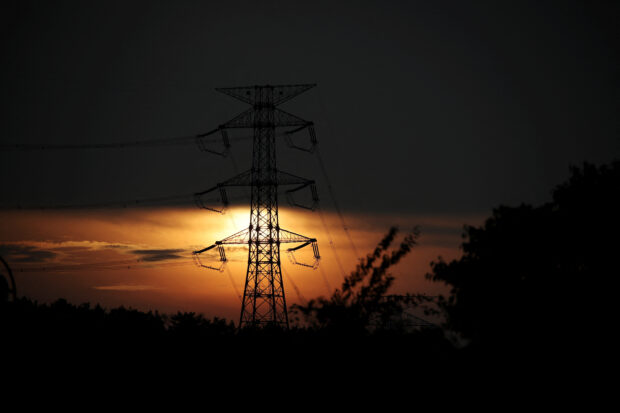
A transmission tower is silhouetted against the setting sun near Kori Nuclear Power Plant in Busan, South Korea, Aug 18, 2022. REUTERS/Kim Hong-Ji
SEOUL – A South Korean government think-tank revised its annual inflation projection upwards on Thursday, citing the recent rise in energy prices, although it said the need for interest rate hikes has lessened.
The Korea Development Institute (KDI) said in its quarterly revision of economic forecasts this year’s inflation would be 3.5 percent, compared with the 3.4 percent it had projected in May. The forecast compares with the government and the central bank’s inflation estimates of 3.3 percent and 3.5 percent, respectively.
READ: Bank of Korea flags upward risks to core inflation
“While the economic sluggishness eased and the labor market continued a solid trend, a slowdown in inflation reduced the need for interest rate hikes,” the KDI said in a statement.
The think-tank often conducts research for the government but rarely gives specific policy suggestions. Market participants tend to read policy advice from the KDI as the views of the finance ministry.
The Bank of Korea, which is independent from the government, held interest rates steady for a fourth straight meeting last month, but said it would maintain a tight stance amid still high prices and kept the door open for further tightening.
READ: Bank of Korea holds rates, to keep policy restrictive
On growth, KDI kept its forecast unchanged at 1.5 percent for this year, higher than the government and the central bank’s 1.4 percent. In the second half, stronger exports would likely offset weaker consumer spending, it said.
READ: South Korea’s Q2 GDP speeds up but weakness clouds outlook
Risk factors to its growth forecast include sluggish growth in China, continued monetary tightening in major economies on higher inflation, and weaker domestic demand on smaller fiscal spending due to limited tax revenues, the KDI added.


